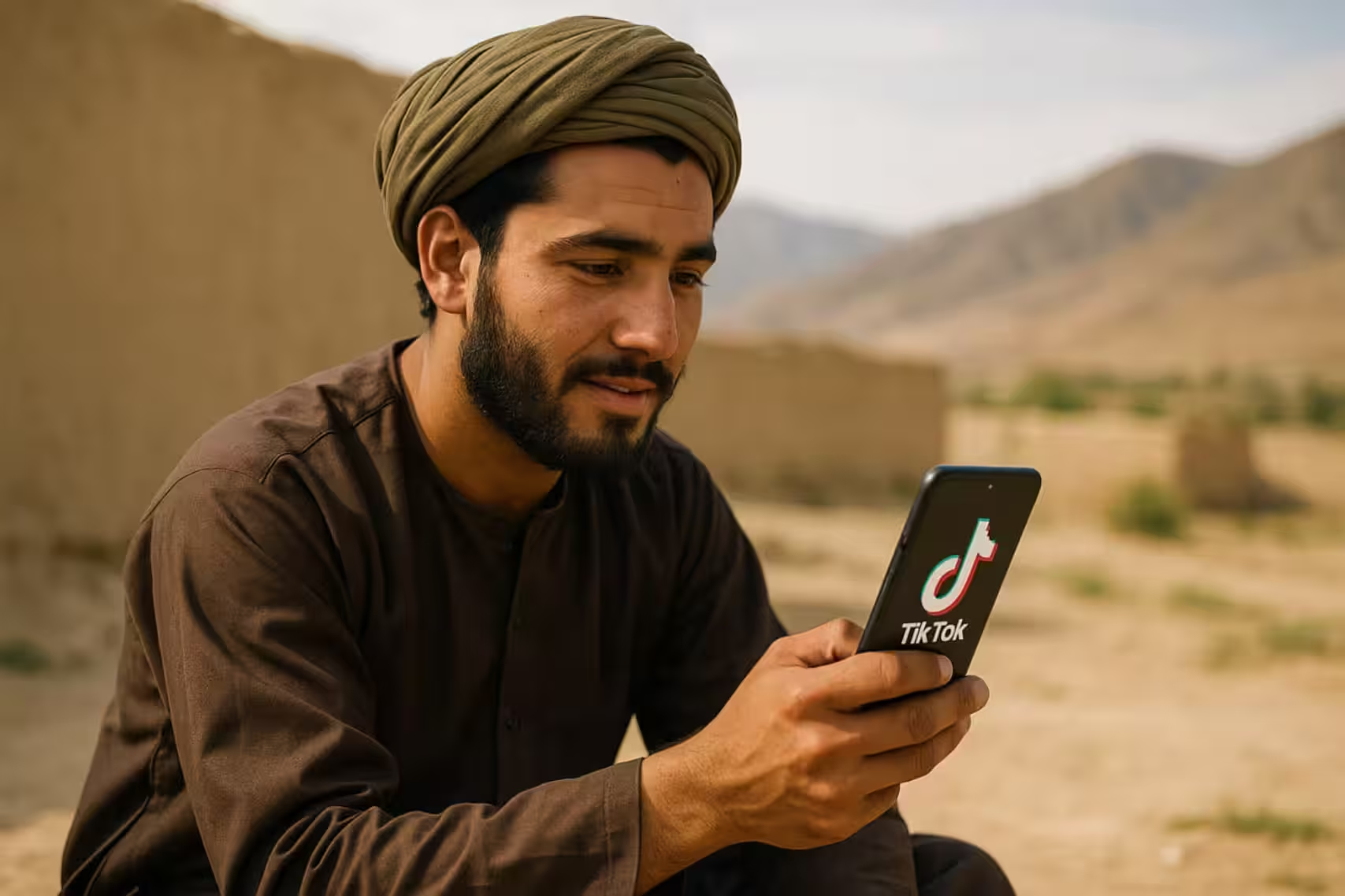The Taliban’s interim administration has intensified its crackdown on social media users, arresting multiple TikTok influencers for activities deemed “unlawful” by the regime, raising alarm over growing digital censorship in Afghanistan, according to Khaama Press.

The Ministry for the Promotion of Virtue and Prevention of Vice, which enforces the Taliban’s interpretation of Islamic law, confirmed the detention of several individuals accused of “illicit” behavior online. Saif Khyber, a spokesperson for the ministry, released videos showing detainees expressing regret for their actions, including TikTok user Haroon Pakora.
In a video widely circulated on Afghan social media, Pakora admitted to engaging in live conversations with women on TikTok, behavior the Taliban now categorizes as a punishable offense. Appearing subdued, he vowed to stop interacting with women online and advised others not to join his live sessions. Reports circulating online suggest he may have been coerced, with unverified claims that his hair was shaved during detention. The circumstances surrounding his arrest remain opaque.
On May 11, the Taliban issued a statement reinforcing its stance on digital conduct, warning that using social media for “unethical and unlawful purposes” would lead to legal consequences. The regime reiterated its bans on TikTok and the video game PUBG, which it outlawed in 2023 on the grounds that they “corrupt youth” and promote immorality.
Despite the bans, TikTok remains popular among Afghanistan’s youth, who have increasingly turned to digital platforms to earn income in a country where economic opportunities have dwindled since the Taliban returned to power in 2021. The new wave of arrests threatens to cut off one of the last remaining financial lifelines for many young Afghans.
The crackdown intensified further on May 13, when Shir Ali Mubariz, a well-known TikTok personality from Baghlan province, was arrested by Taliban intelligence agents. Mubariz, known for his humorous live streams, was accused of “improper behavior” on social media. His detention underscores the regime’s broader campaign to suppress digital content that deviates from its strict ideological and religious codes.
Saif al-Islam Khyber, another spokesperson for the Taliban, stated that social media should only be used for “education, reliable news, and legitimate business.” He warned that “ideological deviation, insult, discrimination, or any misuse contrary to religious values” would be considered criminal.
Analysts warn that the Taliban’s digital repression is eroding what little space remains for free expression in Afghanistan. By targeting influencers and entertainers, the regime is not only censoring content but also stifling creativity, economic agency, and communication among Afghan youth.




